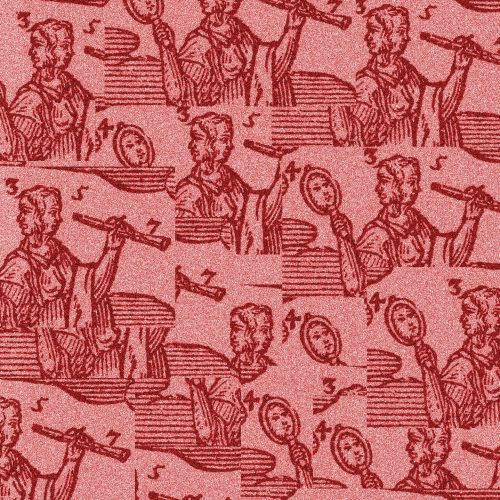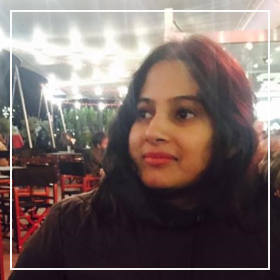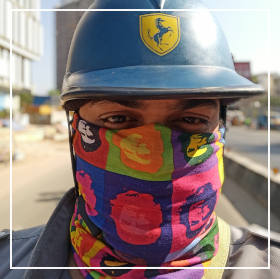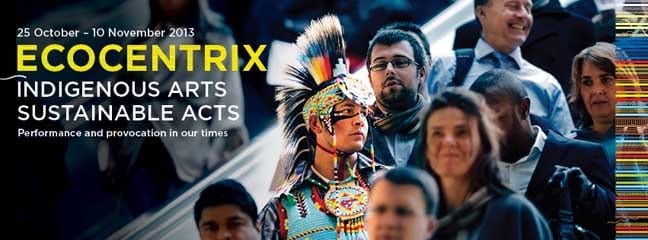Welcome to The Corona Diaries from Allegra, first recorded in April 2020 as part of the Corona thematic thread.
The diaries, published once a day, spoke to many of the same themes and topics that those writing for Allegra at the time were also concerned with. These included the pandemic-induced changing relationship to the city and its public spaces (Stallone 2020), overwork and under-appreciated invisible labour (Cook 2020), middle-class privilege during confinement (Blanco Esmoris 2020), the need to think about public good, social justice and solidarity in political terms (Billaud 2020) and how anthropologists and social scientists more generally can reimagine our research (Kiderlin, Hjalmarson, and Ruud 2020) and prudently assert our importance in public debate (Beyer 2020).
Now we offer up the diaries again, reimagined at the end of the year in a new format.
You can now play multiple audio files at once. Make your own meaning. Explore your own cacophony. Go on, try it.
(unless you’re using a mobile phone, then it won’t work well, sorry!)
Mohira – April 22 – Bishkek
Susanne – April 7- Helsinki
Priyanka – March 27 – Mysuru
Panagiota – April 4 – Barcelona
Goodbyes
Aditya – April 20 – Bengaluru
Nonlinear Diaries
As you can hear, in April 2020 people were speaking a lot about corona. I asked seven diarists – one per day of the week – to reflect on the following questions:
How do we socially and culturally adapt to isolation? How do we experience empty spaces? Are new forms of solidarity emerging? How does it feel to have to work in hospitals, assembly lines or shops when others stay at home? What new questions are we asking ourselves about our parenting and being a child? What new forms of exploitation emerge from the increased digitalisation of work? What new spaces of freedom have emerged? How can we understand social media’s role in the pandemic? How are our modes of communication changing in general? What role does humour play in our new shared experience of an absurd situation without precedent?
It was quite intense, at least for me, to listen to these short but intense personal political performances each night before going to bed.
Wednesdays: Mohira Suyarkulova, Sociologist, Bishkek, Kyrgyz Republic
Thursdays: Justin Spike, Journalist, Budapest, Hungary
Fridays: Priyanka Krishna, Urban Researcher, Mysuru, India
Saturdays: Panagiota Kotsila, Political Ecologist, Barcelona, Spain
Sundays: Tamara Buble, Public Education Executive Officer, Zagreb, Croatia
Mondays: Aditya, Content Developer, Bengaluru, India
Tuesdays: Susanne Ådahl, Medical Anthropologist, Helsinki, Finland
I thought the method of audio diaries would offer richness and depth in real time, capturing diarists own narratives about their own experiences, and opening avenues to unexpected data (Bernays, Rhodes, and Jankovic Terzic 2014), and for the most part this was the case(1).
Though I called them ‘audio diaries’, some of the diarists and listeners preferred to refer to them as ‘podcasts’, which they certainly began to feel like when integrated into digital podcasting infrastructures like Apple Podcasts, Spotify and SoundCloud. However, these platforms made it impossible for our Kyrgyz Republic based diarist, Mohira Suyarkulova, to listen as all platforms were prohibited where she lived.
This compelled us to think we should upload them directly to the Allegra site.
However, now it no longer made sense to follow the traditional serial logic of podcasting. It worked well at the time as it allowed listeners to follow the daily changing updates in the lives of our diarists, with listeners receiving the audio files directly to their phone through RSS feeds. Eight months on, however, we are no longer bound by the need for linearity or timeliness.
As such, whereas The Corona Diaries was originally ‘an exploratory, curated academic project’ similar to other pandemic audio projects, such as City Road’s brilliant ‘Listen to the City in a Global Pandemic’ (see: Rogers et al. 2020) it can now become something else; be given a new lease of life.
Inspired by multimodal anthropologists’ call to create multisensorial, performative and inventive anthropological knowledge rather than only that which is textual, representative and descriptive (Dattatreyan and Marrero‐Guillamón 2019), this reimagined corona diaries is noisy and messy. It allows the user to navigate their way through the five entries by each of the seven voices. In this sense, it embraces multimodal anthropology’s potential to create an ‘entanglement’ –“an adventure, a desire line through a data … [that] calls to mind excitement, risk, confusion and matters of the heart.” (Nolas and Varvantakis 2018, 2).
More directly, I stole borrowed the idea from Claudiu Cobilanschi, a Romanian artist who did something very similar with Ceaușescu’s speeches (sadly no longer online).
Mohira- April 1- Bishkek
Aditya – March 30 – Bengaluru
Tamara – April 5 – Zagreb
Panagiota – April 18- Barcelona
Mohira – April 8 -Bishkek
Susanne – April 21- Helsinki
Panagiota – April 11 – Barcelona
Priyanka – April 3 – Mysuru
Priyanka – April 24 – Mysuru
Panagiota – April 25- Barcelona
Aditya – April 6 – Bengaluru
Susanne – March 31- Helsinki
Online Auscultation
More than half a year on from the original diaries, we’re still speaking about corona, although in a different tone. Maybe a bit more tired, a lot sadder, and slightly more sceptically hopeful. But are we also listening differently?
Back in Spring 2020, the podcast Das Corona Virus from Norddeutscher Rundfunk with virologist Christian Drosten became a hit in the German speaking world. It was suggested that its popularity lay in people being able to get reliable updates about the virus direct from a scientist (Schmitz 2020).
Subscribing to this type of podcast is to engage in a listening practice that seeks to hone in on a particular type of ‘expertise’, whilst cutting out the surrounding noise (from traditional media, armchair experts on social media and politicians). This digitally-enabled listening is different from the listening we do when we hear experts’ rushed soundbites on the radio: it’s more concentrated and selective from the listener’s side.
Such new ways of listening develop alongside the emergence of new auditory technologies, in this case RSS feeds and smartphones. Such listening practices change in relation to the affordances offered by these technological changes, but also in relation to the cultural and historical contexts from within which they emerge, including any auditory predispositions (Rice 2015).
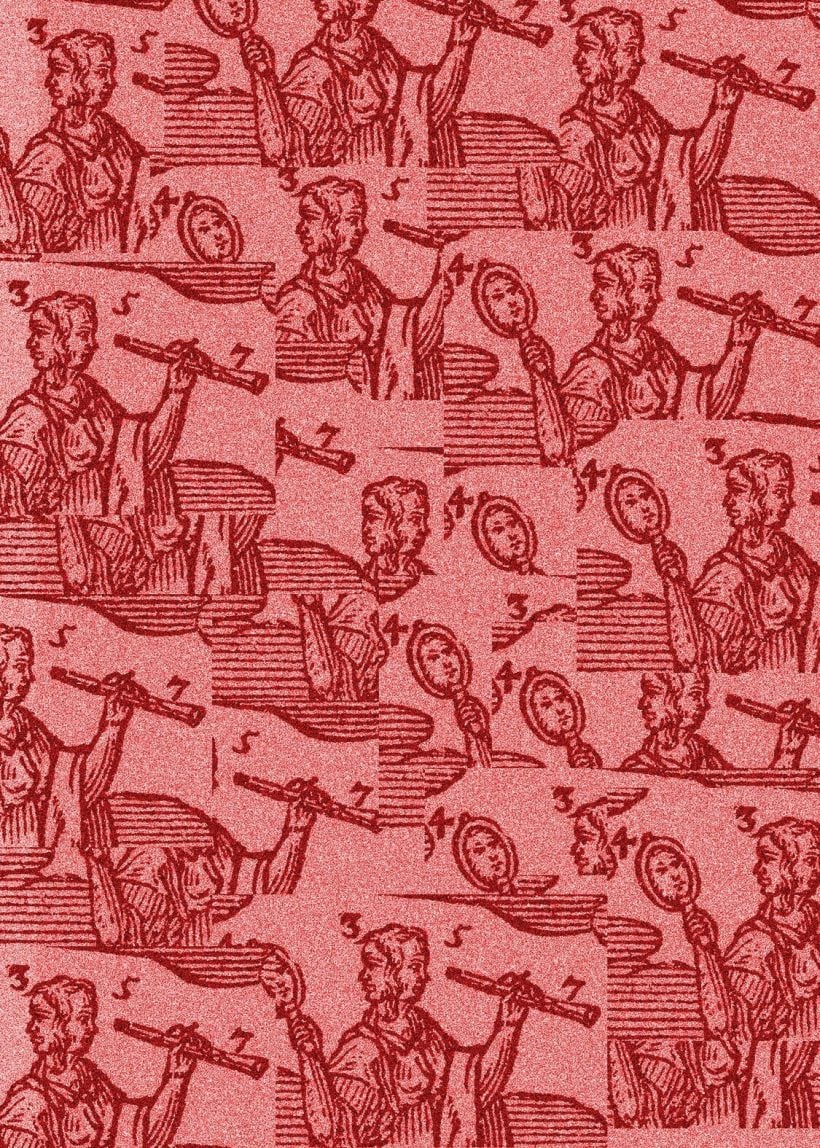
Listening, formed through the intersection of technology and culture, can also be diagnostic. Think of how doctors practice auscultation – listening to the internal sounds of the body, such as the lungs using the stethoscope. As Tom Rice (ibid) argues, such listening practices are key to the production of medical knowledge, but can also destabilise it. Moreover, as he shows through hospital-based ethnography, such modes of listening require both a proximity and detachment. Doctors need to get close to and touch the patient but are also separated by both the instrument they listen through and the need for detached state of mind.
I was reminded of this near-far dialectic when thinking about what type of listening takes place when we subscribe to updates about a deadly global pandemic by someone like virologist Christian Drosten. Listeners to such podcasts make an active choice to subscribe to reliable sober detached updates that are at the same time delivered through the proximate intimacy of the podcasting medium (Llinares, Fox, and Berry 2018; Spinelli and Dann 2019); they allow voices into their head, which are transduced by the technological apparatus of the headphones.
Panagiota – March 28- Barcelona
Justin – April 2 – Budapest
Mohira – April 16 -Bishkek
Priyanka – April 10 – Mysuru
Susanne – April 14 – Helsinki
Tamara – April 12 – Zagreb
Justin – April 23 – Budapest
Cacophonic Meaning-Making
The audio diaries rearranged here aim to engender a different sort of listening. One that invites listening with an added layer of agency. Not only a ‘listening to’ the audio diaries, nor only a ‘listening in’ to the lives of the diarists, but also a type of ‘listening for’ – a ‘listening for’ in which listeners can make their own meaning through digitally-enabled combinations of voices recorded at different moments during the first suffocating lockdown.
Stop making sense. Start making noise.
Justin – March 26 – Budapest
Aditya – April 12 – Bengaluru
Tamara – March 29- Zagreb
Justin – April 9 – Budapest
Mohira – March 25 – Bishkek
Tamara – April 26 – Zagreb
Aditya – April 27 – Bengaluru
Justin – April 16 – Budapest
Priyanka – April 17- Mysuru
Review
Would you like to review The Corona Diaries? We are currently soliciting open post-publication reviews. We are also happy to receive reviews of this piece. Please contact judithb@allegralaboratory.net for more information.
***********
(1) We did not expect being a diarist for Allegra to be inherently empowering (Jones et al. 2015), and recognised issues around confidentiality and oversharing (Williamson et al. 2015), but as the ‘goodbye’ entries revealed, the diarists found making the diaries a positive experience, even if, for some, it became another task to do within increasingly messy schedules.
***********
References
Bernays, Sarah, Tim Rhodes, and Katarina Jankovic Terzic. 2014. ‘Embodied Accounts of HIV and Hope: Using Audio Diaries With Interviews’. Qualitative Health Research 24 (5): 629–40. https://doi.org/10.1177/1049732314528812.
Beyer, Judith. 2020. ‘On Being Voices of Prudence in Times of a Pandemic – #Corona’. Allegra, March. https://allegralaboratory.net/on-being-voices-of-prudence-in-times-of-a-pandemic-corona/.
Billaud, Julie. 2020. ‘Coronavirus: Less Humanitarianism, More Politics!’ Allegra, March. https://allegralaboratory.net/coronavirus-less-humanitarianism-more-politics-corona/.
Blanco Esmoris, María Florencia. 2020. ‘Privilege and Certainty: Middle Classes and Confinement’. Allegra, May. https://allegralaboratory.net/privilege-and-certainty-middle-classes-and-confinement/.
Cook, Ian M. 2020. ‘Slow. the. Fuck. Down.’ Allegra, April. https://allegralaboratory.net/slow-the-fuck-down/.
Dattatreyan, Ethiraj Gabriel, and Isaac Marrero‐Guillamón. 2019. ‘Introduction: Multimodal Anthropology and the Politics of Invention’. American Anthropologist 121 (1): 220–28. https://doi.org/10.1111/aman.13183.
Jones, R. L., J. Fonseca, L. De Martin Silva, G. Davies, K. Morgan, and I. Mesquita. 2015. ‘The Promise and Problems of Video Diaries: Building on Current Research’. Qualitative Research in Sport, Exercise and Health 7 (3): 395–410. https://doi.org/10.1080/2159676X.2014.938687.
Kiderlin, Nina Teresa, Elise Hjalmarson, and Sonja Ruud. 2020. ‘Ethnography at an Impasse? Fieldwork Reflections During a Pandemic’. Allegra, April. https://allegralaboratory.net/ethnography-at-an-impasse-fieldwork-reflections-during-a-pandemic/.
Llinares, Dario, Neil Fox, and Richard Berry. 2018. ‘Introduction: Podcasting and Podcasts-Parameters of a New Aural Culture’. In Podcasting: New Aural Cultures and Digital Media, edited by Dario Llinares, Neil Fox, and Richard Berry, 1–13. Cham: Palgrave Macmillan.
Nolas, Sevasti-Melissa, and Christos Varvantakis. 2018. ‘Entanglements That Matter’. Entanglements 1 (1): 1–4.
Rice, Tom. 2015. ‘Listening’. In Keywords in Sound, edited by David Novak and Matt Sakakeeny, 99–111. Durham: Duke University Press.
Rogers, Dallas, Miles Herbert, Carolyn Whitzman, Eugene McCann, Paul J. Maginn, Beth Watts, Ashraful Alam, et al. 2020. ‘The City Under COVID-19: Podcasting As Digital Methodology’. Tijdschrift Voor Economische En Sociale Geografie 111 (3): 434–50. https://doi.org/10.1111/tesg.12426.
Schmitz, Rob. 2020. ‘“Das Coronavirus” Podcast Captivates Germany With Scientific Info On The Pandemic’. NPR.Org, 31 March 2020. https://www.npr.org/2020/03/31/823865329/das-coronavirus-podcast-captivates-germany-with-scientific-info-on-the-pandemic.
Spinelli, Martin, and Lance Dann. 2019. Podcasting: The Audio Media Revolution. New York: Bloomsbury.
Stallone, Sabrina. 2020. ‘Virus and the City: Urban Experiences in Self-Isolation’. Allegra, April. https://allegralaboratory.net/virus-and-the-city-urban-experiences-in-self-isolation/.
Williamson, Iain, Dawn Leeming, Steven Lyttle, and Sally Johnson. 2015. ‘Evaluating the Audio-Diary Method in Qualitative Research’. Qualitative Research Journal 15 (1): 20–34. https://doi.org/10.1108/QRJ-04-2014-0014.
Music :
Embracing Skies by Morten Rasz licenced under Creative Commons
Image:
Prudentia, Wikimedia Commons, modified by Ian M. Cook

